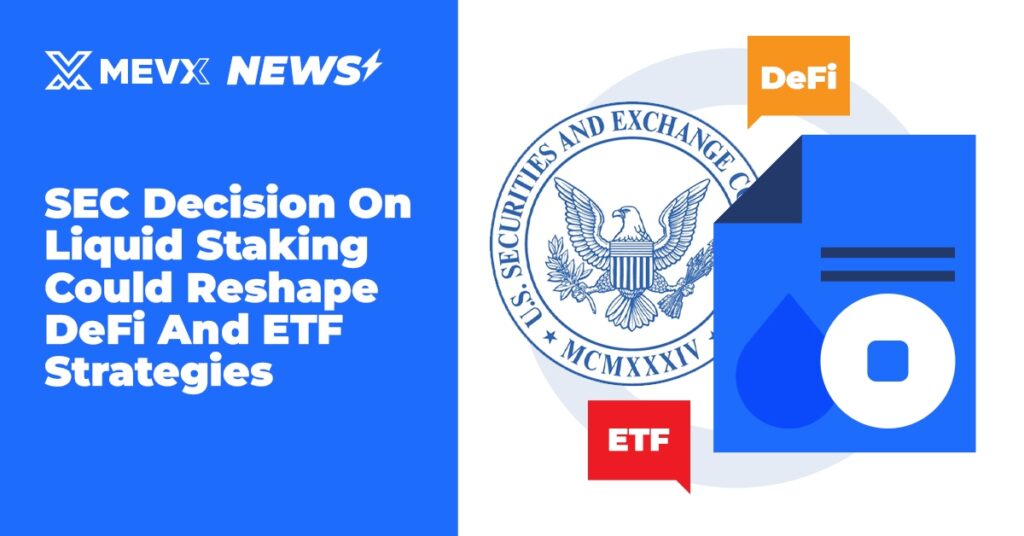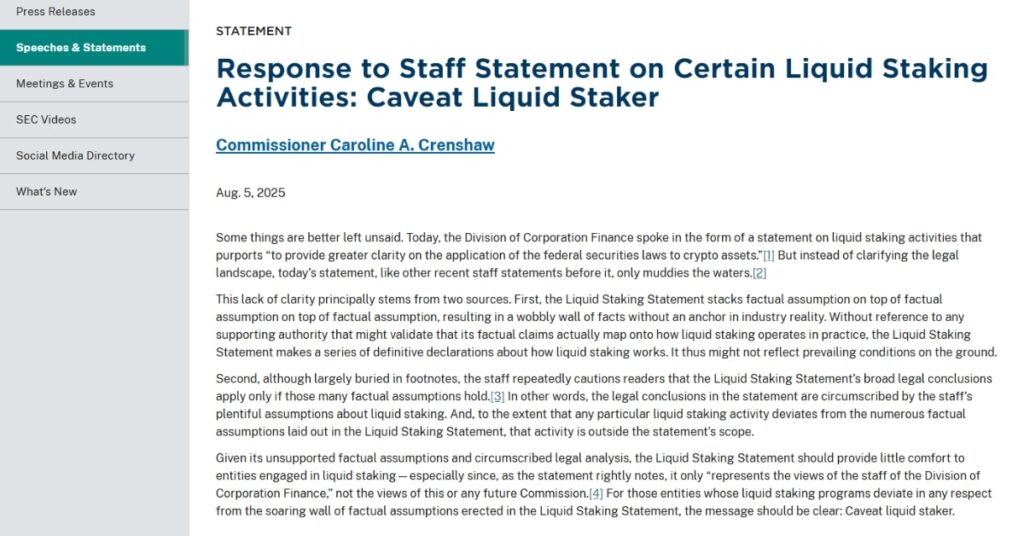TLDR:
- Market Impact: The SEC issued an announcement on August 5, 2025, that liquid staking wasn’t breaking the securities laws, potentially good news for coins like Lido (LDO) and Rocket Pool (RPL).
- Narrative: The SEC’s ruling, within its “Project Crypto” initiative under Chairman Paul Atkins, addresses this matter explicitly in stating that liquid staking is not a securities offering.

On August 5, 2025, the U.S. Securities and Exchange Commission (SEC) made history by declaring that crypto token coin Liquid staking isn’t forbidden under federal securities laws, an act received as crypto’s milestone. In an exemptive determination under the SEC’s “Project Crypto” campaign spearheaded by SEC Chairman Paul Atkins, participants in liquid staking are exempted from SEC registration under securities laws. Described as parking native coins in “lockers” in exchange for representative coins with evidence of ownership, with rewards having been staked, liquid staking had been given the go-ahead to transform exchange-traded funds (ETFs) and decentralized finances (DeFi) on blockchains such as Solana and Ethereum.
SEC’s contention, condensed in a Division of Corporation Finance statement, argues that liquid staking enterprises—of the liquid staking variety provided by services such as Lido or Rocket Pool—aren’t offerings of securities because they do not contain an investment contract component under the Howey Test. It’s an extension of the SEC’s previous finding, released May 29, 2025, that network staking under Proof-of-Stake isn’t a security, apparently part of an overall trend under the Trump administration’s drive toward clearer digital asset regulation. The finding continues the SEC’s trend, as recently evidenced in its dismissal cases against crypto businesses like Coinbase, MetaMask, and OpenSea, of liberal regulation in contrast with the aggressive enforcement under the previous Chairman Gary Gensler.
Industry observers view this as a watershed for crypto ETFs. ETF analyst Nate Geraci posted on X that the decision could allow Ethereum ETFs to come with liquid staking, making it possible for funds to earn 3-4% APR returns, similar to protocols like Lido (72.88% of Ethereum liquid staking market share). The same incentive could become available for upcoming ETFs pending on Solana, Sui, and Avalanche, making them more attractive for institutional funds. The broader $250 billion stablecoin and DeFi market, already booming on Solana’s low-cost, high-performance blockchain, will benefit as liquid staking tokens like LDO and RPL could gain more traction.

However, SEC Commissioner Caroline Crenshaw warned that the presumption employed in the decision may not precisely describe market reality, possibly leading to confusion, since it’s only true where certain conditions are fulfilled. Aside from that, huge trading volumes in Solana-hosted memecoins and DeFi protocols indicate robust ecosystem activity. Market volatility or validator penalties are risks, but, to traders’ and DeFi followers’ surprise, the SEC approach gives the liquid staking route tremendous potential to fuel innovation and profits in Solana’s vibrant ecosystem. Bounce alert—regulatory subtleties are still a robust booster.
Read the latest news on the MevX Blog!
Share on Social Media:
